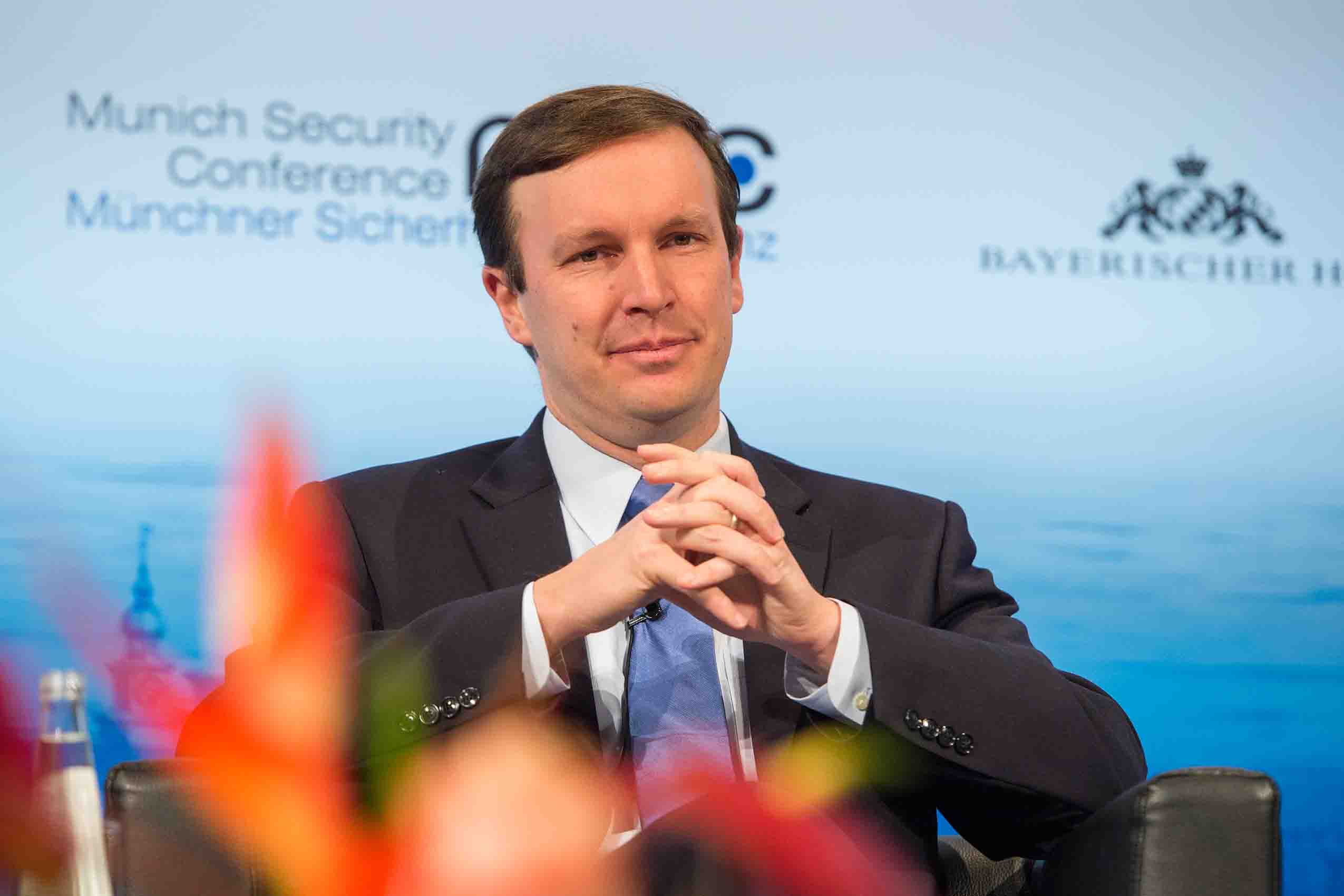
WikimediaCommons
After visiting New Haven to call for gun control reform in the wake of the mass shooting in Las Vegas earlier this month, U.S. Sen. Chris Murphy, D-Conn., returned to the Elm City this Friday to discuss issues lying beyond the nation’s borders.
Murphy — a member of the Senate Committee on Foreign Relations — spoke on Friday to a crowd of roughly 100 people at the Yale Law School about Congress’ role in foreign policymaking. The talk focused on the difficulties of crafting foreign policy in an era that lacks a clearly defined enemy and in which covert military action under the auspices of the executive branch has become an important instrument of war.
“There is this popular misconception in politics today that the American public isn’t all that interested in foreign policy in a way that they might have [been] during the Cold War,” Murphy said. “If you are a conscientious member of Congress and you’re doing these informal, organic focus groups on a regular basis, there will be big, long stretches of time in which you are not hearing about foreign policy — until it’s the only thing you’re hearing about.”
Murphy’s talk, which lasted just short of half an hour, touched on the difficulties of making foreign policy decisions in a “multipolar” world, and the evolving role of Congress in diplomacy and military action.
Under former President Barack Obama’s administration, much of the war against the Islamic State conducted was justified under a military authorization granted in 2001 in the wake of the 9/11 terrorist attacks. Murphy stressed the importance of the Obama administration’s eventually seeking congressional approval in 2013 to respond to the use of chemical weapons in the Syrian civil war with military force.
During the question-and-answer section of the event, Murphy spoke of the uncertainty of foreign policy under the Trump Administration, in which different members of the executive branch have articulated different visions for United States’ role on the global stage.
“I have no idea what the foreign policy of America is today,” Murphy said. “I don’t know if it is the one explained to me by Secretary [of Defense John] Mattis or Secretary [of State Rex] Tillerson” or the one explained on Donald Trump’s Twitter feed.
The remarks marked the keynote address of a daylong conference: “Congress and Foreign Affairs,” co-hosted by the Law School’s Center for Global Legal Challenges and the Jackson Center for Global Affairs.
Panels before Murphy’s address discussed the relationship between Congress and executive-branch war powers, as well as Congress’ role in the making and breaking of international agreements. The conference was attended mostly by Yale Law School affiliates.
“Congress and Foreign Affairs” was spearheaded by Ben Alter LAW ’18, a student leader with the Center for Global Challenges. Alter said he wanted to focus on Congress’ role in foreign affairs in response to the overwhelming emphasis on the executive branch in recent discourse on international relations.
“In previous years, a lot of the discussions about national security and foreign policy at [Yale Law School] have been necessarily executive-focused,” Alter said. “There was a lot of enthusiasm for President Obama and a lot of Obama officials were coming through the law school. After the election, we were brainstorming about what programming we could do and how we could carry forward the discussion at a time when politics was up for grabs … and we thought that it would be a good time to check in on the role of Congress in making foreign policy.”
Oona Hathaway LAW ’97, the director of the Center for Global Challenges and a professor of international law at Yale Law School, said that the idea behind the center is to promote dialogue between academic and political communities about world issues facing the world.
The Center has several events planned for later this year, including a lectures series on women and foreign policy, the first of which, “Evaluating Progress in Women’s Rights and Opportunities,” the first installment of which will be held at 6 p.m. today at the Yale Law School.
Keshav Raghavan | keshav.raghavan@yale.edu
Interested in getting more news about New Haven? Join our newsletter!







